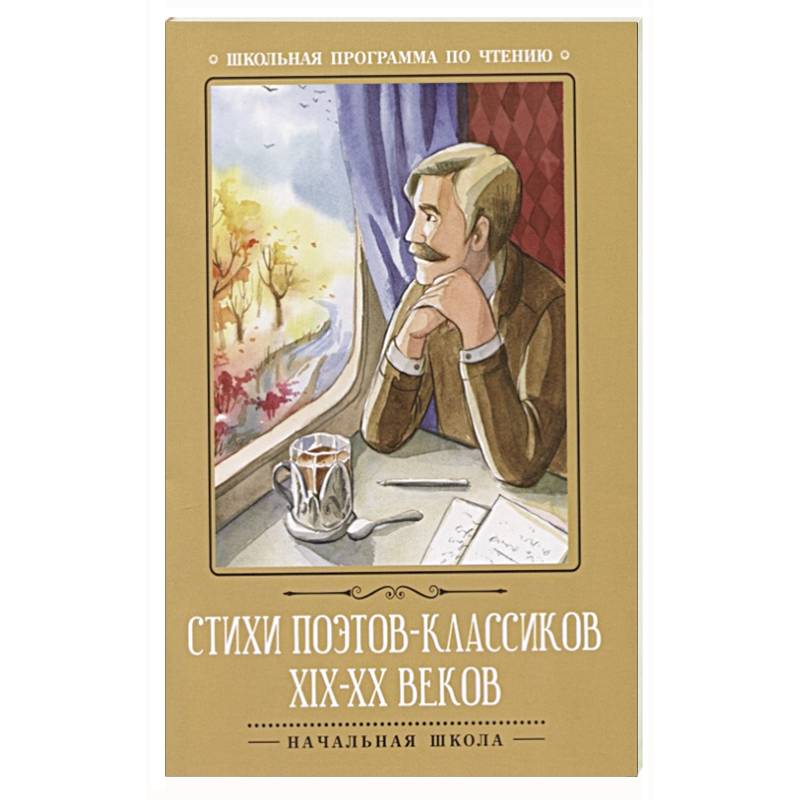Poems of classic poets of the XIX-XX centuries
Please sign in so that we can notify you about a reply
XIX century - the heyday of Russian poetry, its golden age. This era gave the whole world the beautiful works of A.S. Pushkin and M.Yu. Lermontov. And although, according to the famous critic of that time V.G. Belinsky, “after Pushkin and Lermontov, it is difficult to be not only wonderful, but also some kind of poet,” Russian classical poetry still developed.
. In the second half of the 19th century, poets were conventionally divided into poets of “pure art”, who developed romantic traditions, and poets of “civilian lyrics”, who developed a realistic tradition. The main criterion of such a separation was an understanding of the purpose of the poet and poetry. The goal of “civil poetry” was “the crowd to remind that the people were inerpiting” (N.A. Nekrasov) The poets of “pure art” left reality, turned to the most part to the eternal philosophical, universal topics. They believed that art should be independent of the authorities and the people, that its goal is to create a wonderful poetic world. F.I. Tyutchev, A.A. Fet, A.N. Maikov, A.K. Tolstoy. Despite the differences, poets of different directions united the service of the ideals of beauty and truth, goodness and love for the homeland. None of the poets of “pure art” denied the ideas of justice, and the poets of “civil lyrics” in their works reflected the subtlest movements of the soul of the lyrical hero, which, it would seem, is not characteristic of them. The works of Russian lyrics of the second half of the 19th century are distinguished by amazing musicality, many of them have become romances that are still popular. As noted by M.E. Saltykov-Shchedrin, romances A.A. Feta sings almost all of Russia. But these words can be attributed to the work of A.S. Pushkin, M.Yu. Lermontova, A.N. Pleshcheeva, F.I. Tyutcheva.
The revolutions of the beginning of the 20th century and the First World War had a significant impact on the fate of the whole generation, on the worldview of people, and this undoubtedly reflected in the literature of the Silver Age. However, love for the homeland, the chanting of the beauty of the nature of the native land remain one of the main topics of the work of the poets of the beginning of the 20th century (S. Yesenin, A. Blok, Sasha Black and others).
. For primary school age
. In the second half of the 19th century, poets were conventionally divided into poets of “pure art”, who developed romantic traditions, and poets of “civilian lyrics”, who developed a realistic tradition. The main criterion of such a separation was an understanding of the purpose of the poet and poetry. The goal of “civil poetry” was “the crowd to remind that the people were inerpiting” (N.A. Nekrasov) The poets of “pure art” left reality, turned to the most part to the eternal philosophical, universal topics. They believed that art should be independent of the authorities and the people, that its goal is to create a wonderful poetic world. F.I. Tyutchev, A.A. Fet, A.N. Maikov, A.K. Tolstoy. Despite the differences, poets of different directions united the service of the ideals of beauty and truth, goodness and love for the homeland. None of the poets of “pure art” denied the ideas of justice, and the poets of “civil lyrics” in their works reflected the subtlest movements of the soul of the lyrical hero, which, it would seem, is not characteristic of them. The works of Russian lyrics of the second half of the 19th century are distinguished by amazing musicality, many of them have become romances that are still popular. As noted by M.E. Saltykov-Shchedrin, romances A.A. Feta sings almost all of Russia. But these words can be attributed to the work of A.S. Pushkin, M.Yu. Lermontova, A.N. Pleshcheeva, F.I. Tyutcheva.
The revolutions of the beginning of the 20th century and the First World War had a significant impact on the fate of the whole generation, on the worldview of people, and this undoubtedly reflected in the literature of the Silver Age. However, love for the homeland, the chanting of the beauty of the nature of the native land remain one of the main topics of the work of the poets of the beginning of the 20th century (S. Yesenin, A. Blok, Sasha Black and others).
. For primary school age
Author:
Author:Tyutchev F., Fet A., Nekrasov N.
Cover:
Cover:Soft
Category:
- Category:Children's Book
Publication language:
Publication Language:Russian
Paper:
Paper:newspaper
Series:
Series: School for reading
Age restrictions:
Age restrictions:3+
ISBN:
ISBN:978-5-222-36539-7
No reviews found
